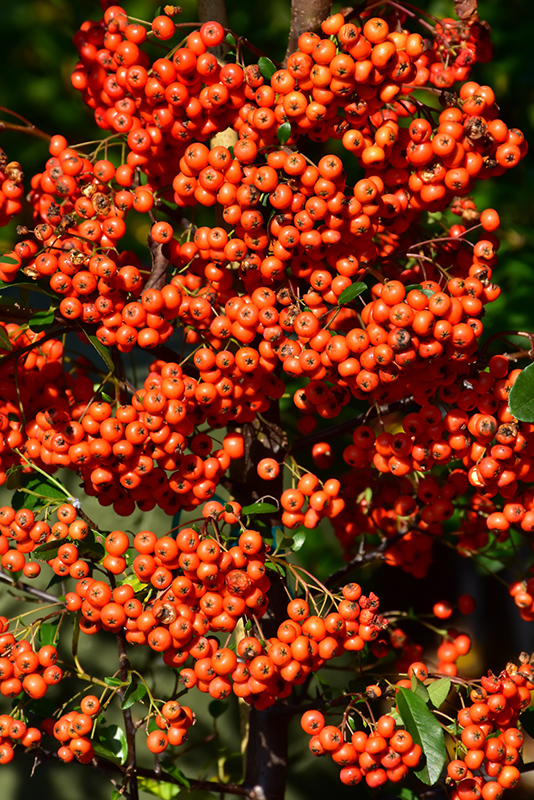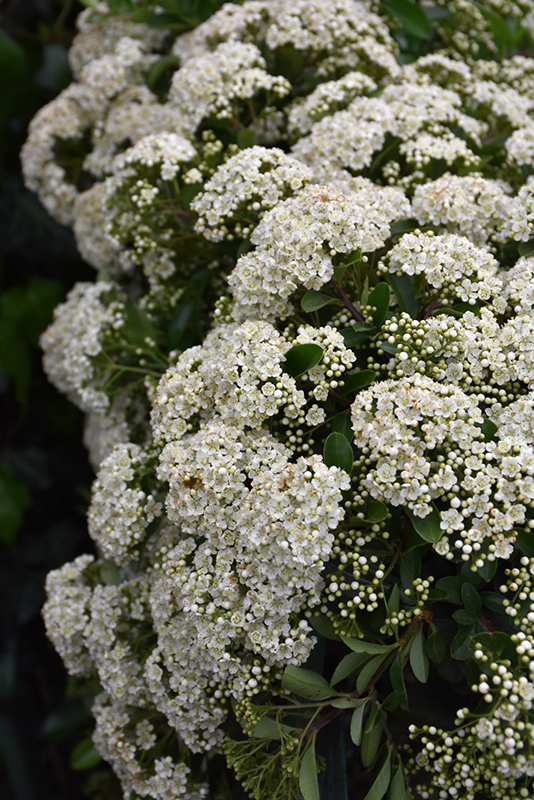Height: 10 feet
Spread: 10 feet
Sunlight:
![]()
![]()
Hardiness Zone: 5a
Description:
This broadleaf evergreen shrub produces copious brilliant orange-red fruit in fall which last throughout winter, very showy; bears white flowers in spring with a musty scent; needs full sun and well-drained soil, can be susceptible to fireblight
Ornamental Features
Mohave Firethorn features showy clusters of white flowers held atop the branches in late spring. It has dark green evergreen foliage. The glossy oval leaves turn coppery-bronze in the fall, which persists throughout the winter.
Landscape Attributes
Mohave Firethorn is a dense multi-stemmed evergreen shrub with a more or less rounded form. Its average texture blends into the landscape, but can be balanced by one or two finer or coarser trees or shrubs for an effective composition.
This shrub will require occasional maintenance and upkeep, and is best pruned in late winter once the threat of extreme cold has passed. Gardeners should be aware of the following characteristic(s) that may warrant special consideration;
- Spiny
Mohave Firethorn is recommended for the following landscape applications;
- Accent
- Mass Planting
- Hedges/Screening
- General Garden Use
- Topiary
Planting & Growing
Mohave Firethorn will grow to be about 10 feet tall at maturity, with a spread of 10 feet. It tends to be a little leggy, with a typical clearance of 1 foot from the ground, and is suitable for planting under power lines. It grows at a medium rate, and under ideal conditions can be expected to live for 40 years or more.
This shrub does best in full sun to partial shade. It is very adaptable to both dry and moist locations, and should do just fine under average home landscape conditions. It is not particular as to soil type, but has a definite preference for acidic soils, and is subject to chlorosis (yellowing) of the foliage in alkaline soils. It is highly tolerant of urban pollution and will even thrive in inner city environments, and will benefit from being planted in a relatively sheltered location. This particular variety is an interspecific hybrid.


